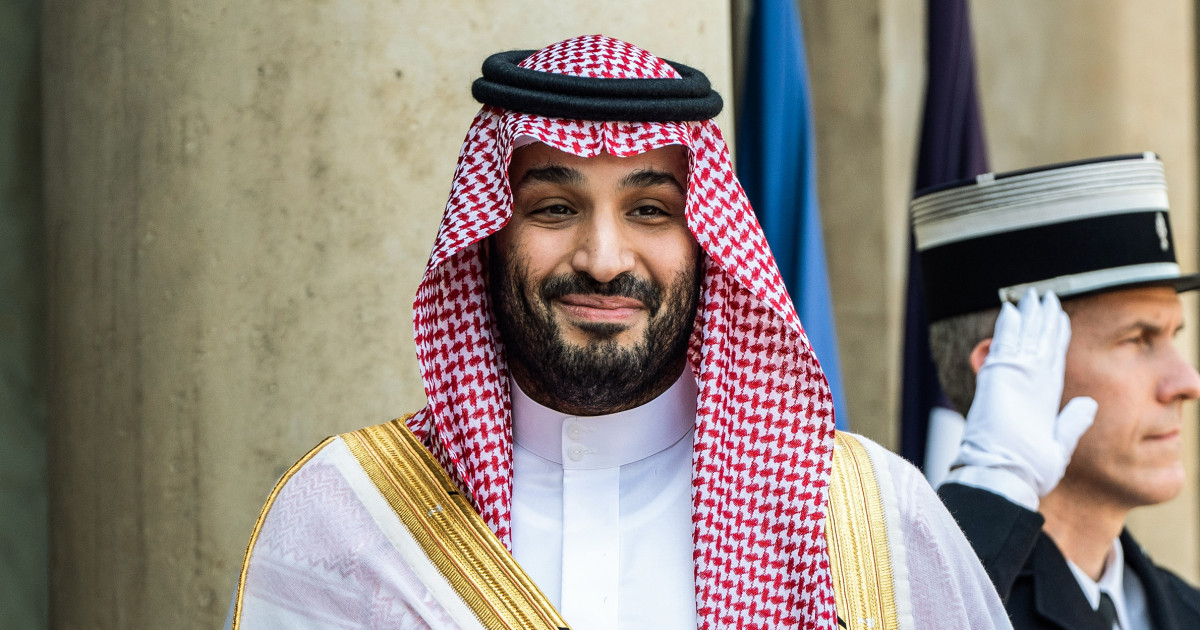
www.nbcnews.com
Saudi crown prince unbothered by 'sportswashing' label: 'Call it whatever you want'
Saudi Crown Prince Mohammed bin Salman said he does not care how the world views his country's heavy investment in sports.
International
Saudi Crown Prince Mohammed bin Salman said he does not care how the world views his country's heavy investment in sports. For him, the resulting increase in the gross domestic product is all that matters.
"If sportswashing is going to increase my GDP by 1%, then we will continue doing sportswashing," bin Salman said in an interview that aired Wednesday on Fox News. “I don’t care. I have 1% growth in GDP from sport, and I am aiming for another 1.5%. Call it whatever you want.”
Sportswashing is the label some have given to using sports to rehabilitate an image or a reputation. Human rights groups and advocates have accused Saudi Arabia of heavily investing in sports and hosting major sporting events to divert attention from human rights abuse.
Human Rights Watch and other agencies have called out Saudi Arabia for a record of abuse that includes killing hundreds of unarmed Ethiopian migrants last month, imprisoning women's rights campaigners, killing journalist Jamal Kashoggi in 2018 and executing 81 people in a single day last year.
“He's done more than say he doesn’t care," said Minky Worden, Human Rights Watch's director of global initiatives. "He’s really endorsed the idea of sportswashing as a way of covering up the country’s very serious human rights abuses. We've now heard from the top that this is state policy."
Saudi Arabia's sports investments top $50 billion since 2016, the human rights group Grant Liberty said in a report released this year. That includes a 10-year contract to host World Wrestling Entertainment events, international golf competitions and Formula 1 events and even an attempt to land French soccer icon Kylian Mbappé in a $332 million deal.
Bin Salman has been a driving force behind the investments as part of his Vision 2030 strategy, which aims to "diversify" the country's investments economically, socially and culturally, according to its website.
“Vision 2030 has the effect of projecting an image that Saudi Arabia is reforming on a human rights front when it is not,” said Worden of Human Rights Watch. “Sportswashing occurs when a country seeks to host a beloved major sporting event and really weaponize the love that fans have for a sport while also simultaneously not improving the human rights situation."
She said sportwashing poses risks because of the construction it requires.
"Saudi Arabia has not had the sports infrastructure to host major events," she said. "The government is building major stadiums without trade unions to protect migrant workers who are working in deadly heat. Saudi Arabia is trying to buy the halo effect of these major sporting events to wash away its poor international image."
The Persian Gulf country will host the 2023 FIFA Club World Cup football tournament in December. The announcement in February drew outrage from human rights groups, including Human Rights Watch and Amnesty International.
Accusations of sportswashing were also levied when the country’s sovereign wealth fund purchased 80% of the English Premier League soccer club Newcastle United. Amnesty International called the $400 million takeover a "PR tool to distract from the country’s abysmal human rights record."
Previously, Saudi representatives rejected the concept of sportswashing. Asked about the accusations by CBS News in June, the sports minister, Prince Abdulaziz bin Turki Al Saud, said he did not agree with the idea that countries would cover up bad acts with sports.
"I don't agree with that, with that term," bin Turki Al Saud said. "I think that if you go to different parts of the world, then you bring people together. Everyone should come, see Saudi Arabia, see it for what it is, and then make your decision."
But bin Salman's interview this week revealed that he is unbothered by perceptions surrounding Saudi Arabia's sports investment. He told Fox News proudly that sports now account for 1.5% of Saudi Arabia's GDP.
"For us in Saudi Arabia, we look to our needs, to our people's needs, and to our economy's needs. If that changes perception positively, great," he said.
Felix Jakens, Amnesty International UK’s Head of Priority Campaigns and Individuals at Risk, said in a statement, "Not caring about the sportswashing label is one thing, but Mohammed bin Salman also doesn’t seem to care about the peaceful activists languishing behind bars in Saudi Arabia, the 196 people executed in the country last year, or the personal pain of the family of Jamal Khashoggi who are still desperately hoping to see justice done in his case."
Another recent accusation about Saudi Arabia's sportswashing record reached the Senate floor when the Saudi-owned upstart league LIV Golf and the PGA Tour announced they were partnering in June. Two U.S. senators and the Justice Department opened investigations.
“Today’s hearing is about much more than the game of golf,” Sen. Richard Blumenthal, D- Conn., said at a hearing about the merger. “It’s about how a brutal, repressive regime can buy influence, indeed even take over a cherished American institution to cleanse it’s public image.”
Asked about the merger in the interview Wednesday, bin Salman applauded it as a "game changer" for the golf industry.
Worden of Human Rights Watch said golf could be just the beginning of a much larger strategy to host major sporting events like the 2030 or 2034 World Cups.
"Saudi Arabia is going to be a test for the sporting world," she said. "Is it going to succumb to the lure of hundreds of billions of dollars as we've seen with golf, or is it actually going to stand for principles, for women's rights, press freedom and workers rights?"
























































